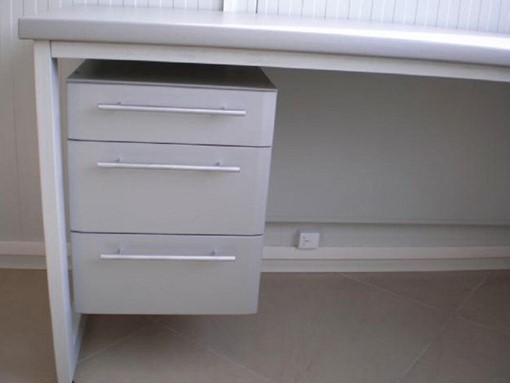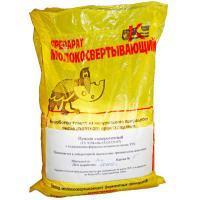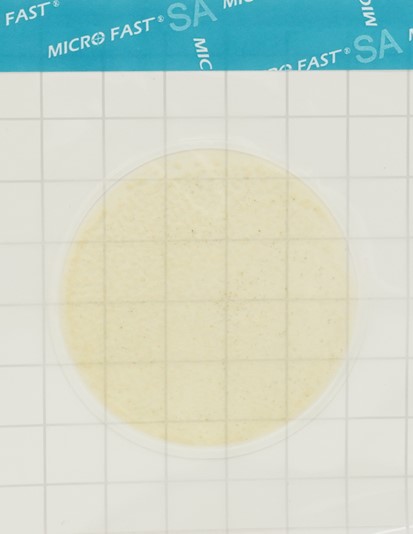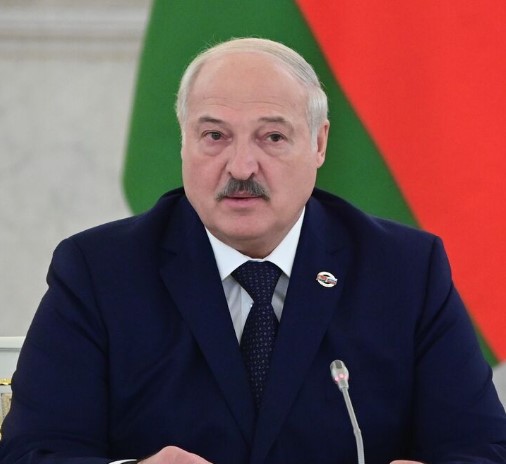Three Days Ago. An Investigator from Gomel Shared His Memories of the Afghan Hell
Alexander Solovyov Topic news "I dreamed about my native places, though only when I managed to sleep" - a conversation with an internationalist soldier from Gomel, Alexander Solovyov, about the Afghan period of his life is not easy. The always sociable reserve colonel of justice is not inclined to cinematic effects and is not inclined to voice the horrors of that war. His recollections contain a share of sarcasm, there are also bright moments, many meaningful long pauses. After all, even after more than a third of a century, those events are fresh in the memory despite the fact that, as a boy, he was thrown into the whirlpool of events that were burning in every sense. Investigator (civil servant) of the Gomel city department of the Investigative Committee Alexander Solovyov told a BELTA correspondent about how he fulfilled his international duty, and what he dedicated his life to after that.
A guy from the army special forces
In the early 1980s, Aleksandr Solovyov had just graduated from a vocational school, received a specialty as a toolmaker and, like many guys, was determined to serve in the army. True, he did not specifically volunteer to fulfill his international duty. But fate decreed that the guy was called up to a hot spot, returning home unharmed.
The 18-year-old native of the Gomel region was called up for service in 1984. In 1985-86, he served in the army as part of the 334th separate special forces detachment. Extreme conditions, climate features with high temperatures and dry air, a shortage of drinking water - in addition, you could literally feel the breath of death on your skin.
Aleksandr Georgievich was in the epicenter of the Afghan hell - near Asadabad, from where it was a stone's throw to the border with Pakistan, from which aid was coming for the mujahideen gangs. Together with his comrades, Sasha Solovyov took part in a bloody battle in the Maravar Gorge.
The convoy was shelled by the mujahideen on mountain roads, and was in constant readiness at the deployment sites. When stationed on an island between the Kunar River and the branch of the Pechdara River, they lived in armored personnel carriers for almost a month under heavy machine gun fire.
After the Mujahideen raids, some of the guys remained in the status of "forever in memory." There were many who received serious physical injuries, and there were enough psychological traumas. Those yesterday's boys who returned home later matured early, and became intelligent beyond their years. As the interlocutor explains, later, in civilian life, one day in Afghanistan was counted as three.
In the spring of 1986, they were returning home. When they were on their native land, they heard the news of the disaster at the Chernobyl Nuclear Power Plant. "It seemed to us at that moment that nothing could be more terrible than Afghanistan. After all, that was also a catastrophe," notes Alexander Solovyov, without downplaying the severity of the consequences of the radiation hazard.
The brightness of black and white
Of particular value from the Afghan period is the home photo archive of Alexander Solovyov. The demobilization album contains more than a hundred black-and-white shots that reflect those few minutes of silence that were a luxury in the Afghan crucible. Always looking at them, he experiences mixed feelings, because they are the borderland of life and death, peace and war, the bitterness of loss and the value of a second, human destinies hanging by a thread.
However, youth took its toll. In between military actions, the guys found reasons to joke, to humor, to notice something amazing and even beautiful in the local landscapes. For example, on the island where the detachment was stationed, a large olive grove was laid out. The soldiers had to cut it down to set up a tent city.
Looking through the photographs, Alexander Solovyov comments on almost every one. These pictures show different moments from political studies captured by amateur photographers from the unit and moments when the guys diligently wrote letters to their families. And in one of the photos, Alexander has his eyes closed. And this is not a moment when he blinked, but a dream, into which he fell, albeit briefly, after three days of an ambush. And he dreamed of his native places, trees that seemed so huge. "I always dreamed when I managed to sleep," he notes.
Photos with comrades in arms are priceless, as is the significance of these people in the life of Alexander Georgievich. All his comrades are worthy people who have gone through the school of life and relationships in extreme circumstances. "I can give their phone numbers, because each of them is worthy of having a report written about them," he says. He himself is quite reserved in sharing details of military campaigns. Forever in memory - company commander Arseniy Tatarczuk, Vasily Kazak, Igor Kapota and other guys.
In the Footsteps of Crimes
Returning home, Alexander decided to connect his life with jurisprudence. He entered the law faculty of the Belarusian State University. Already during his years of study, he realized that this was his calling, the work of his life.
In a conversation about the everyday life of an investigator, Alexander Solovyov noticeably becomes animated. It should be noted that this path is also not an easy one, because his formation as a specialist took place in the wild 90s. About the crime situation at that time, almost legends were made up, based on real events. They say that sometimes during a shift, more than one rod was spent on preparing materials.
For example, Alexander Georgievich remembers his first case very well. It was a murder at a wedding in a rural area. He recalls that then almost everything was transparent: during the fun, one of the relatives of the newlyweds stabbed the other directly in the heart.
They had to literally dig when investigating episodes of the criminal activity of Morozov's gang. The brutal reprisals and tortures of these bandits were loudly reported in the press. These were very resonant cases.
Впрочем, были невероятные открытия и при расследовании на первый взгляд обычных преступлений на бытовой почве. Так, однажды по прибытии на адрес, где произошло зверское убийство мужчины, начали протоколировать следы совершенного преступления. Буквально все указывало на ограбление, зацепок практически никаких. Но выяснилось, что к этому причастен младший сын погибшего. "Впервые в жизни такое видел. У мальчишки явный криминальный талант. Так все сымитировал, замаскировал убийство под ограбление в свои неполные 18 лет", - делится следователь. Но и этот клубок был распутан, а виновный привлечен к ответственности. Как смягчающее обстоятельство при назначении наказания парнишке был учтен тот факт, что в крови погибшего обнаружено 14,5 промилле алкоголя - это три смертельные дозы. "Тогда еще у эксперта уточнил, верны ли цифры. Оказывается, и такое может быть", - дополняет следователь.
Александр Соловьев работал в прокуратуре, Следственном комитете, некоторое время в управлении Государственного комитета судебных экспертиз по Гомельской области. Сейчас продолжает трудовой путь в Гомельском городском отделе СК. На глазах проходили десятилетия. И сегодня опытный следователь отмечает, как изменилась структура преступлений. "Технологические возможности дали всплеск киберпреступлений. Мошенники используют доверие людей. Даже мне и моим знакомым звонили, некоторые собирались уже в банк оформлять кредит. А сколько человек и на какие огромные суммы оказались обмануты? Надо вести еще более активную профилактику", - считает он.
Награда по жизни
Александр Соловьев награжден тремя медалями "За отвагу". Первую получил в Афганистане весной 1986 года, вторую - осенью того же года, уже после демобилизации, а третью - в Минске в 1989-м. Вопрос о наградах и их цене словно повисает в воздухе. Ответ, наверное, и не нужен. Многое читается во взгляде. В такие моменты понятно, что молчание говорит гораздо больше и эмоциональнее, чем какие-либо слова.
Лучшей наградой по жизни считает свою семью. Судьба подарила надежный тыл. Вместе с супругой идут рука об руку практически всю жизнь. Чувства, которые зародились еще в юности, с каждым годом только укрепляются. Воспитали троих сыновей.
15 февраля - День памяти воинов-интернационалистов - особый для тех, кто выполнял свой гражданский долг за тысячи километров от Родины. Эта дата - не единственный повод для встреч людей, которые фактически ближе друг другу, чем некоторые кровные родственники. У полковника юстиции Соловьева на сегодня обязательный минимум - в Гомеле митинг с возложением цветов, торжественное собрание, праздничный концерт и в его честь, и в честь его боевых товарищей, где бы они не находились.
When possible, they also organize a meeting with fellow soldiers from Belarus at the military unit in Maryina Gorka, including Gomel residents Yuri Yarosh and Pavel Fedortsov. In the mid-1980s, they left this small town from a special forces combat unit to go to war in Afghanistan. Now a museum has been built there, preserving the memory of the special forces, including 105 guys who did not return. Their names are inscribed on the stele of the memorial complex. They are remembered with light sadness and spoken of as if they were alive.
In conclusion of the conversation, Aleksandr Georgievich wishes everyone peace. And even little children understand the meaning of this word now. And it is important to protect and defend this peace, not to fight for it, he is sure.
BELTA,
photo courtesy of the Investigative Committee of the Gomel Region.
A guy from the army special forces
In the early 1980s, Aleksandr Solovyov had just graduated from a vocational school, received a specialty as a toolmaker and, like many guys, was determined to serve in the army. True, he did not specifically volunteer to fulfill his international duty. But fate decreed that the guy was called up to a hot spot, returning home unharmed.
The 18-year-old native of the Gomel region was called up for service in 1984. In 1985-86, he served in the army as part of the 334th separate special forces detachment. Extreme conditions, climate features with high temperatures and dry air, a shortage of drinking water - in addition, you could literally feel the breath of death on your skin.
Aleksandr Georgievich was in the epicenter of the Afghan hell - near Asadabad, from where it was a stone's throw to the border with Pakistan, from which aid was coming for the mujahideen gangs. Together with his comrades, Sasha Solovyov took part in a bloody battle in the Maravar Gorge.
The convoy was shelled by the mujahideen on mountain roads, and was in constant readiness at the deployment sites. When stationed on an island between the Kunar River and the branch of the Pechdara River, they lived in armored personnel carriers for almost a month under heavy machine gun fire.
After the Mujahideen raids, some of the guys remained in the status of "forever in memory." There were many who received serious physical injuries, and there were enough psychological traumas. Those yesterday's boys who returned home later matured early, and became intelligent beyond their years. As the interlocutor explains, later, in civilian life, one day in Afghanistan was counted as three.
In the spring of 1986, they were returning home. When they were on their native land, they heard the news of the disaster at the Chernobyl Nuclear Power Plant. "It seemed to us at that moment that nothing could be more terrible than Afghanistan. After all, that was also a catastrophe," notes Alexander Solovyov, without downplaying the severity of the consequences of the radiation hazard.
The brightness of black and white
Of particular value from the Afghan period is the home photo archive of Alexander Solovyov. The demobilization album contains more than a hundred black-and-white shots that reflect those few minutes of silence that were a luxury in the Afghan crucible. Always looking at them, he experiences mixed feelings, because they are the borderland of life and death, peace and war, the bitterness of loss and the value of a second, human destinies hanging by a thread.
However, youth took its toll. In between military actions, the guys found reasons to joke, to humor, to notice something amazing and even beautiful in the local landscapes. For example, on the island where the detachment was stationed, a large olive grove was laid out. The soldiers had to cut it down to set up a tent city.
Looking through the photographs, Alexander Solovyov comments on almost every one. These pictures show different moments from political studies captured by amateur photographers from the unit and moments when the guys diligently wrote letters to their families. And in one of the photos, Alexander has his eyes closed. And this is not a moment when he blinked, but a dream, into which he fell, albeit briefly, after three days of an ambush. And he dreamed of his native places, trees that seemed so huge. "I always dreamed when I managed to sleep," he notes.
Photos with comrades in arms are priceless, as is the significance of these people in the life of Alexander Georgievich. All his comrades are worthy people who have gone through the school of life and relationships in extreme circumstances. "I can give their phone numbers, because each of them is worthy of having a report written about them," he says. He himself is quite reserved in sharing details of military campaigns. Forever in memory - company commander Arseniy Tatarczuk, Vasily Kazak, Igor Kapota and other guys.
In the Footsteps of Crimes
Returning home, Alexander decided to connect his life with jurisprudence. He entered the law faculty of the Belarusian State University. Already during his years of study, he realized that this was his calling, the work of his life.
In a conversation about the everyday life of an investigator, Alexander Solovyov noticeably becomes animated. It should be noted that this path is also not an easy one, because his formation as a specialist took place in the wild 90s. About the crime situation at that time, almost legends were made up, based on real events. They say that sometimes during a shift, more than one rod was spent on preparing materials.
For example, Alexander Georgievich remembers his first case very well. It was a murder at a wedding in a rural area. He recalls that then almost everything was transparent: during the fun, one of the relatives of the newlyweds stabbed the other directly in the heart.
They had to literally dig when investigating episodes of the criminal activity of Morozov's gang. The brutal reprisals and tortures of these bandits were loudly reported in the press. These were very resonant cases.
Впрочем, были невероятные открытия и при расследовании на первый взгляд обычных преступлений на бытовой почве. Так, однажды по прибытии на адрес, где произошло зверское убийство мужчины, начали протоколировать следы совершенного преступления. Буквально все указывало на ограбление, зацепок практически никаких. Но выяснилось, что к этому причастен младший сын погибшего. "Впервые в жизни такое видел. У мальчишки явный криминальный талант. Так все сымитировал, замаскировал убийство под ограбление в свои неполные 18 лет", - делится следователь. Но и этот клубок был распутан, а виновный привлечен к ответственности. Как смягчающее обстоятельство при назначении наказания парнишке был учтен тот факт, что в крови погибшего обнаружено 14,5 промилле алкоголя - это три смертельные дозы. "Тогда еще у эксперта уточнил, верны ли цифры. Оказывается, и такое может быть", - дополняет следователь.
Александр Соловьев работал в прокуратуре, Следственном комитете, некоторое время в управлении Государственного комитета судебных экспертиз по Гомельской области. Сейчас продолжает трудовой путь в Гомельском городском отделе СК. На глазах проходили десятилетия. И сегодня опытный следователь отмечает, как изменилась структура преступлений. "Технологические возможности дали всплеск киберпреступлений. Мошенники используют доверие людей. Даже мне и моим знакомым звонили, некоторые собирались уже в банк оформлять кредит. А сколько человек и на какие огромные суммы оказались обмануты? Надо вести еще более активную профилактику", - считает он.
Награда по жизни
Александр Соловьев награжден тремя медалями "За отвагу". Первую получил в Афганистане весной 1986 года, вторую - осенью того же года, уже после демобилизации, а третью - в Минске в 1989-м. Вопрос о наградах и их цене словно повисает в воздухе. Ответ, наверное, и не нужен. Многое читается во взгляде. В такие моменты понятно, что молчание говорит гораздо больше и эмоциональнее, чем какие-либо слова.
Лучшей наградой по жизни считает свою семью. Судьба подарила надежный тыл. Вместе с супругой идут рука об руку практически всю жизнь. Чувства, которые зародились еще в юности, с каждым годом только укрепляются. Воспитали троих сыновей.
15 февраля - День памяти воинов-интернационалистов - особый для тех, кто выполнял свой гражданский долг за тысячи километров от Родины. Эта дата - не единственный повод для встреч людей, которые фактически ближе друг другу, чем некоторые кровные родственники. У полковника юстиции Соловьева на сегодня обязательный минимум - в Гомеле митинг с возложением цветов, торжественное собрание, праздничный концерт и в его честь, и в честь его боевых товарищей, где бы они не находились.
When possible, they also organize a meeting with fellow soldiers from Belarus at the military unit in Maryina Gorka, including Gomel residents Yuri Yarosh and Pavel Fedortsov. In the mid-1980s, they left this small town from a special forces combat unit to go to war in Afghanistan. Now a museum has been built there, preserving the memory of the special forces, including 105 guys who did not return. Their names are inscribed on the stele of the memorial complex. They are remembered with light sadness and spoken of as if they were alive.
In conclusion of the conversation, Aleksandr Georgievich wishes everyone peace. And even little children understand the meaning of this word now. And it is important to protect and defend this peace, not to fight for it, he is sure.
BELTA,
photo courtesy of the Investigative Committee of the Gomel Region.





























































